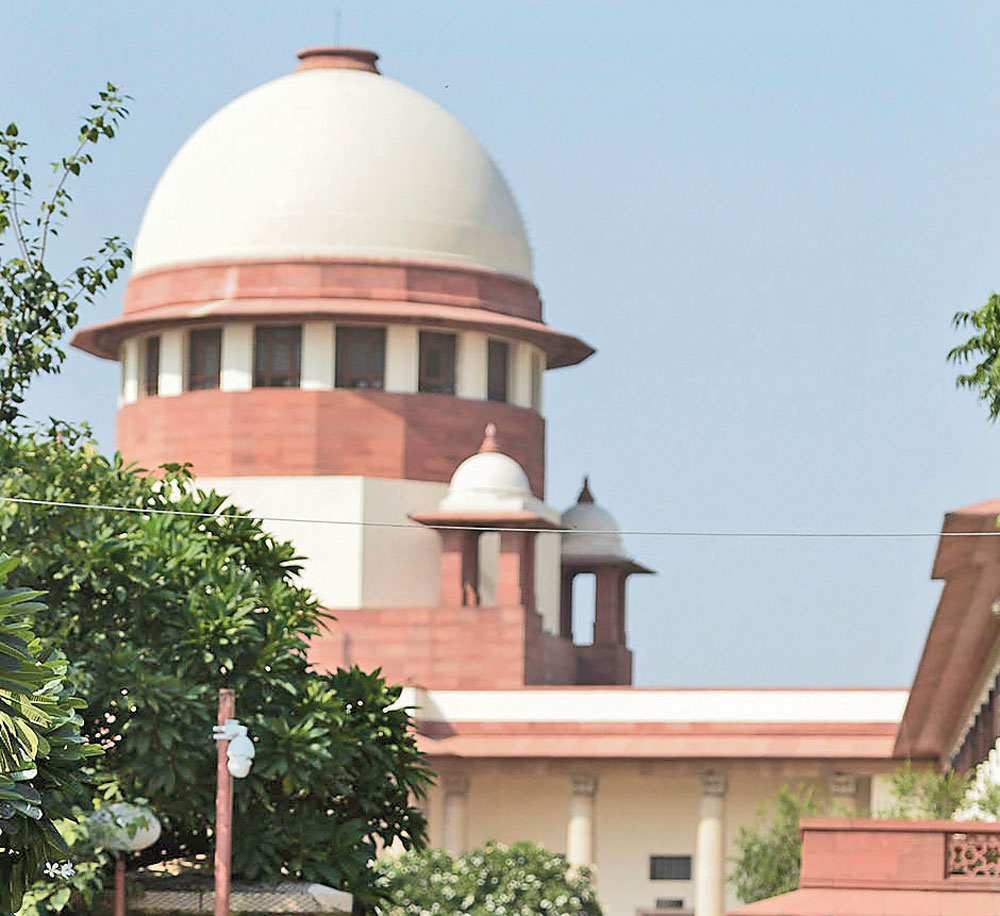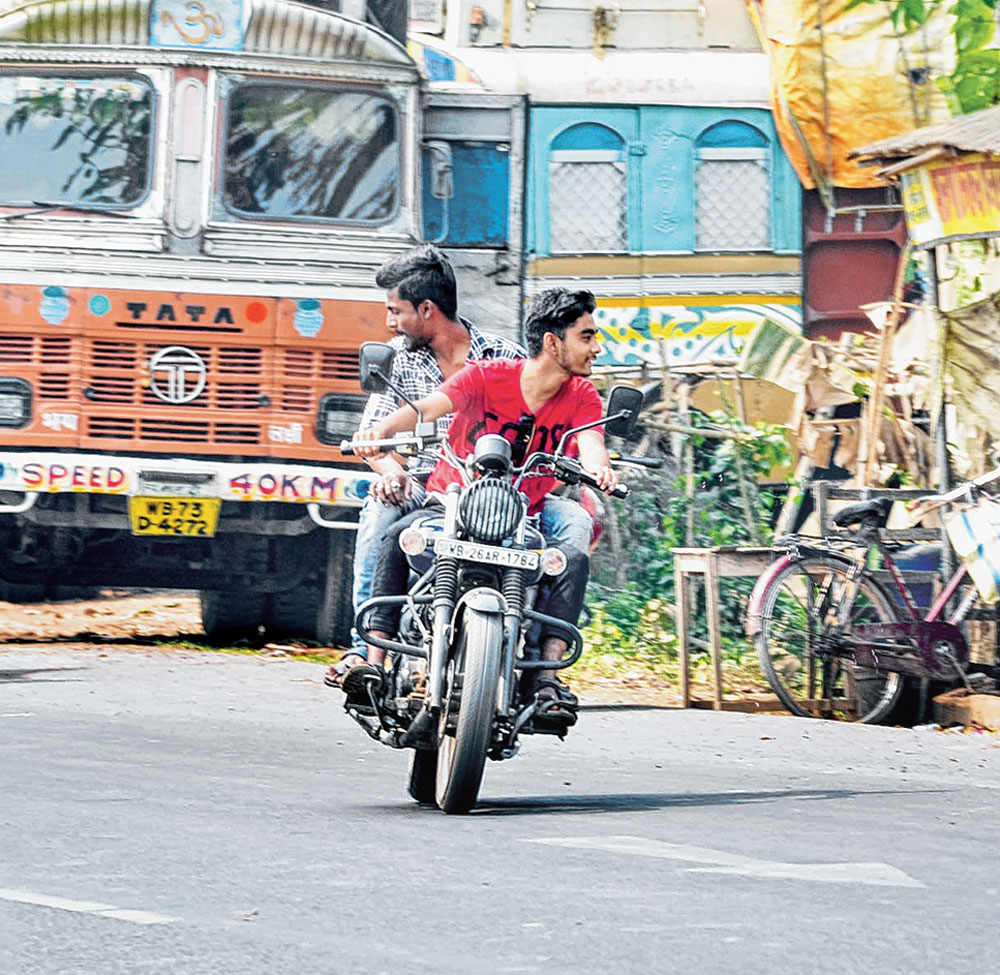Sir — Speeding bikes are a menace in the city. The sight of young, helmet-less men whizzing past vehicles is quite common in night-time Calcutta. Lax surveillance on the part of law-keepers is but one factor that brings about such a flagrant violation of traffic rules. The rot lies deeper. In commercials featuring two-wheelers, the emphasis is on equating thrill with velocity. The dangers of such an equation are never mentioned in these television advertisements. One way of discouraging speeding would be to change the content of two-wheeler commercials.
Rocky Rodriguez,
Calcutta
Late surge
Sir — A five-judge Constitution bench of the Supreme Court has given a slew of directives to political parties to curb the involvement of criminals in politics (“Party over”, Sept 27). It has also suggested that Parliament should pass a law to prevent individuals with serious criminal charges against them from joining the poll fray. This is definitely a positive development, although one feels that the judgment has come much too late in the day. Also, considering the fact that politicians across the spectrum are involved in criminal activities, it does not seem that the parties will be interested in passing the law any time soon.
It is because of the presence of criminals in politics that the police force often cannot take action against illegal activities. There are a few good men and women in politics, they must now do something to cleanse their field.
Manas Kumar Majumdar,
North 24 Parganas
Sir — The measures suggested by the apex court to curb the presence of criminals in legislative bodies may turn out to be not so effective. Further, the court has left it to the wisdom of Parliament to enact a law to bar those facing serious criminal charges from contesting elections. One wonders why political parties would want to bring in such a law, as they often depend on criminals and miscreants to win polls. It would have been better had the Supreme Court taken a more proactive step. Some people might have then accused the judiciary of transgressing the ‘lakshman rekha’ and intruding into the domain of the legislature, but it would still have been more preferable. Perhaps the apex court has missed a historic opportunity to banish criminal elements from Indian politics.
Chanchal Nandy,
Durgapur
Sir — The Supreme Court has declined to bar chargesheeted persons from running for public office. It has instead asked Parliament to frame a law to disallow people facing serious criminal charges from contesting elections.
Under law, a person is considered innocent until proven guilty. And it is better not to tinker with this convention. Conviction or acquittal follows a lengthy process in our country. It would, therefore, be unjustified to stop a person from contesting the polls until he or she is held guilty by the court. We should also remember that on many occasions, chargesheets are filed with ulterior motives. A law, without effective checks and balances, will further encourage political witch-hunts.
Khokan Das,
Calcutta
Soft target
Sir — The Indian Railways is called the lifeline of the nation. It is, therefore, the duty of every citizen to protect it. But, unfortunately, of late, the railways have become a soft target for protestors. Organizations of all shades, often with tacit approval of political outfits, resort to rail rokos. Such impromptu rail blockades are carried out to blackmail the government into accepting the demands of the agitators. The railways incur heavy losses in the process, even if they are not remotely connected to the issue at stake. These demonstrations also put ordinary railway passengers in trouble.
The recent rail blockade in certain districts of West Bengal, carried out by the Bharat Jakat Majhi Pargana Mahal — an organization demanding recognition for the Santhali language at the university level — is one such example of irresponsible agitation. It led to the cancellation of many long-distance trains, inconveniencing thousands of hapless passengers and throwing their schedules haywire. People, including the elderly, infants and patients, were forced to spend long hours within their coaches as numerous trains were held up. The travellers also had to manage with inadequate food and water.
The state administration clearly suffered from indecision, as the chief minister, Mamata Banerjee, was away on a foreign tour. It took 22 long hours for the government to convince the protestors to lift the blockade.
I.N. Banerjee,
Calcutta
Parting shot
Sir — Low-hanging cables are a serious problem in Calcutta. Multi-system operators tie cables around lamp posts without sparing a thought for the safety of the citizens. In some places, such as Kasba and Bediadanga, the problem gets more acute as even electricity cables run overhead. Often, these wires dangle precariously. But still the authorities seem reluctant to take any strong measures. Are they waiting for a tragedy to strike?
Rhea Roy,
Calcutta

A view of the Supreme Court India Image credit: PTI Photo/Vijay Verma










